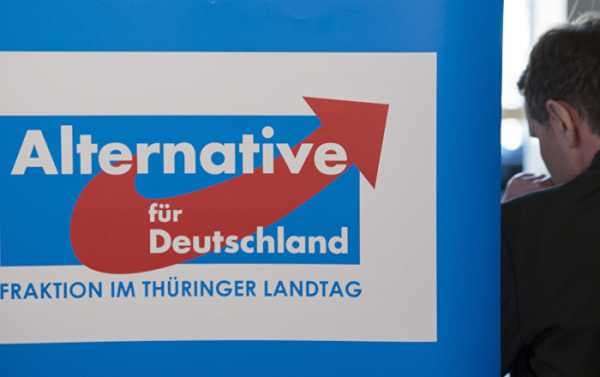
The Alternative for Germany (AfD) party is facing a decline in popularity, with left-leaning Greens, referring to themselves as ‘the alternative to the Alternative.’
The AfD is polling at around 20 percent compared to AfD’s 15 percent, making them the country’s strongest party after German Chancellor Angela Merkel’s Christian Democratic Union (CDC) — Christian Social Union (CSU) bloc.
Last month, German media reported that Alice Weidel, co-chair of the AfD parliamentary group in the Bundestag, had received some 130,000 euros ($146,500) from a pharmaceutical company registered in Switzerland. The funds were transferred to one of AfD’s offices in small amounts allegedly for financing Weidel’s election campaign, according to media reports.
Despite the allegations, Weidel claimed that six months after the last transaction was carried out, the full donation sum was returned. Political parties cannot be financed by individuals or companies from non-EU nations, under German law.
In October, Merkel declared that she would give up her role as head of the Christian Democrats and would not seek re-election as chancellor in 2021. The announcement came after the CDU suffered a setback in a state vote in Hesse, while its Bavarian sister party, the CSU, also saw its biggest loss in half a century in last month’s regional parliament elections.
As AfD’s main slogan has been ‘Merkel must go,’ the openly nationalistic party may be required to identify a new “object of hate,” according to Berlin daily Tagesspiegel.
“When Merkel goes, the AfD will need a new object of hate,” Berlin daily Tagesspiegel suggested.
“With her retreat, Angela Merkel may have achieved something in which she previously failed: to truly hurt the AfD,’ the report added.
If moderate Annegret Kramp-Karrenbauer, nicknamed ‘mini-Merkel,’ replaces Merkel as the party’s next leader, the AfD might, however, be able to turn her into a new scapegoat.
Kramp-Karrenbauer, a part of local CDU politics for over 30 years, has been a regional politician in Germany’s smallest state, Saarland and has shown a tendency toward centrist, no-nonsense management, according to reports.
Referred to as the ‘Merkel of Saarland’ in some German media, Kramp-Karrenbauer has led two state coalition governments with the CDU and SPD as premier and was Germany’s first state interior minister, in 2000.
But is is her avowed enjoyment of rock and roll, particularly the Australian juggernaut AC/DC, which is thought to be most comment-worthy, according to local Saarland press.
Sourse: sputniknews.com






